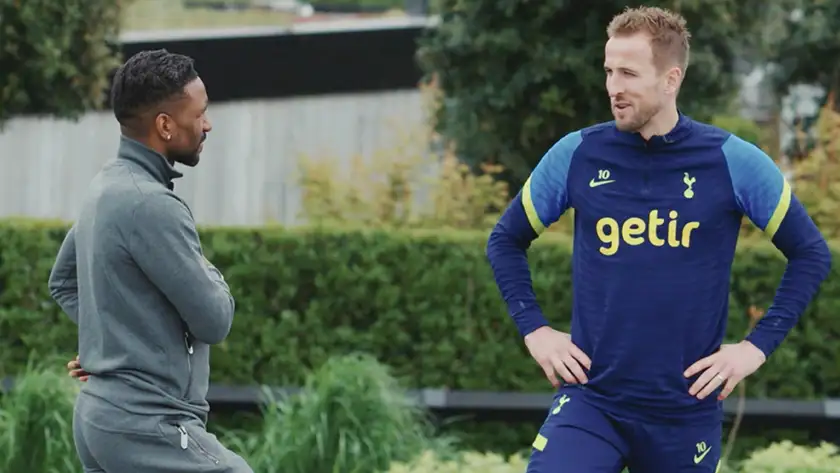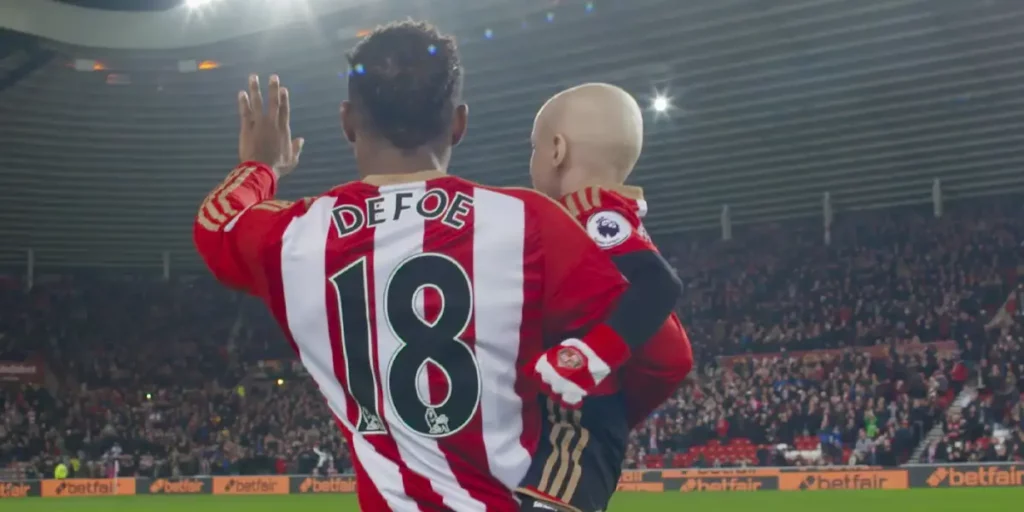The Jermain Defoe documentary serves as a much-needed reminder that footballers, despite being put on a pedestal at clubs like Tottenham and West Ham, are human beings before all else.
We have all seen plenty of sports documentaries in our time, detailing the rise to stardom of some of the world’s most famous athletes. Defoe, a documentary written and directed by lifelong Tottenham Hotspur fan James Ross, is a little different. With the greatest respect, although Jermain Defoe is one of the most clinical strikers England has ever produced, Lionel Messi, Cristiano Ronaldo and Diego Maradona he is not. What is unique about the Defoe story is the man behind the goals and the legacy he leaves behind after a successful career finding the back of the net with startling regularity.
The term ‘journeyman’ is often used to describe footballers who bounce from club to club throughout their career. But, despite wearing the shirts of seven different teams between 1999 and 2022, Defoe could not have been further from a journeyman. Jermain managed to forge a connection with every single club he represented, whether it be bursting onto the scene as a youngster at West Ham United, breaking goalscoring records at Tottenham, or winning the Scottish Premiership with Rangers. Defoe was loved, he was celebrated, and to this day, he is remembered.
The highlights of Defoe as a documentary are undoubtedly the glimpses into the life of a Premier League player away from the pitch. What happens when your agent pressures you into handing in a transfer request as a youngster? How does it feel to be left out of a World Cup squad when most people agree you should have gone? How do off-pitch tragedies affect a life lived in the spotlight? The life story of Jermain Defoe is so interesting, heart-breaking, and inspirational that the football highlights in between almost feel like a distraction. The documentary serves as a much-needed reminder that footballers are humans above all else, and no amount of money in the world should detract from your right to privacy and respect.

In 2009, Jermain’s half-brother, Jade, died of head injuries following an assault. Three years later, Jermain’s father passed away from throat cancer while the striker was with the England camp ahead of EURO 2012. That same year, 20-year-old Hannah Defoe, cousin to Jermain, was electrocuted in a Caribbean hotel swimming pool. While such loss and tragedy would be hard for any one person to experience, going through it under the intensity of the public spotlight brings a far different challenge. The positivity of Jermain as a human being shines through when he turns that intense spotlight into something beautiful during his friendship with six-year-old cancer patient Bradley Lowery, who tragically passed away in 2017. These are the moments, lessons and stories that give the Defoe documentary so much emotional depth beyond your average story of sports stardom.
Defoe is far more about the legacy of the man than a celebration of footballing talent, but it turns out Jermain has both in abundance. If anything, the documentary was crying out for more of a focus on those personal stepping stones in his life, as well as the social issues that come with being a young, black footballer in Britain.
Defoe is coming to UK cinemas for one night only on 29th February, with an exclusive recorded Q&A with Jermain Defoe.

